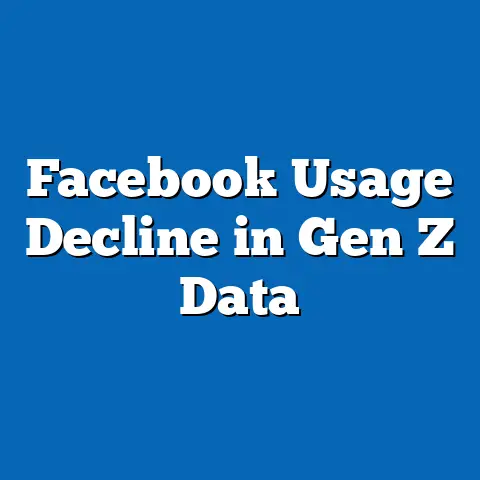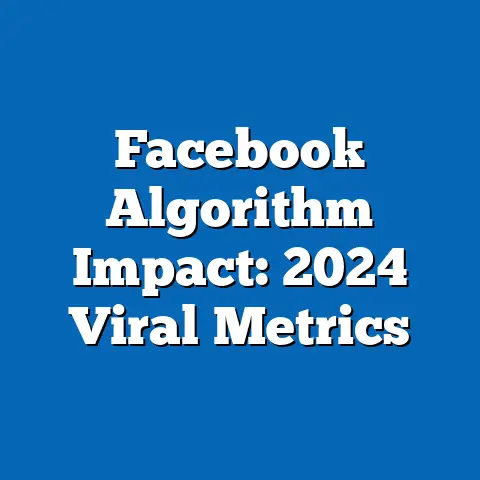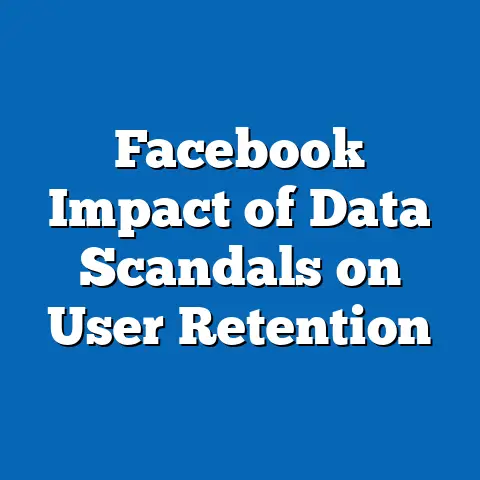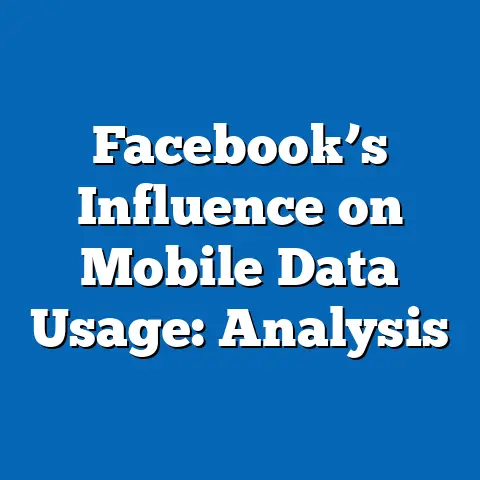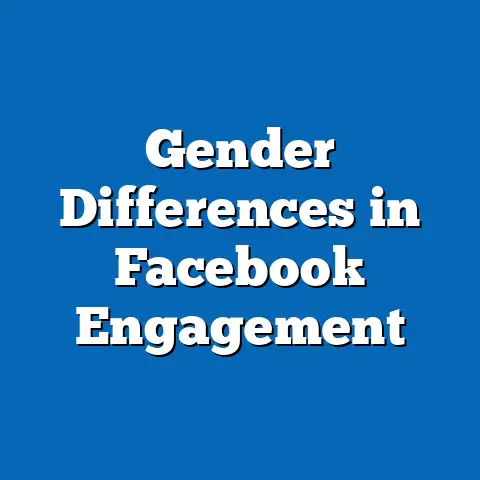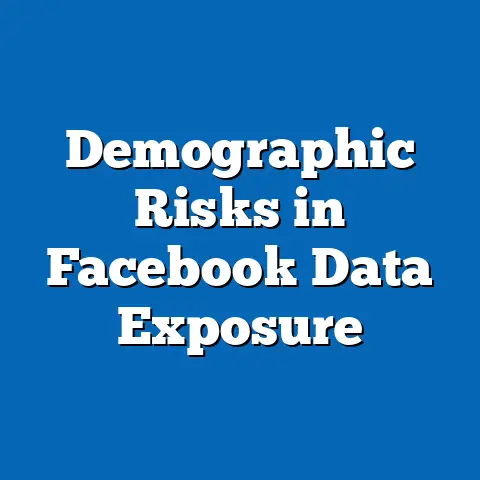User Awareness of Facebook Data Usage by Age
How can we build a digital world where every individual, regardless of age, confidently navigates the complexities of data privacy, turning passive users into informed guardians of their own information?
This question lies at the heart of understanding user awareness of Facebook data usage, a topic that intersects generational studies, technological evolution, and societal ethics.
As social media platforms like Facebook continue to shape daily life, disparities in awareness based on age reveal deeper divides in digital literacy, trust, and empowerment.
In this article, we analyze user awareness of Facebook’s data practices through the lens of generational demographics.
We define key generations—such as Gen Z, Millennials, Gen X, and Baby Boomers—based on their formative experiences and technological exposures.
Historical context, including the rise of social media and pivotal data scandals, provides a foundation for understanding how these factors have influenced awareness levels.
By examining data-driven insights, we compare generational characteristics while acknowledging internal diversity, and we explore the broader societal implications for privacy, culture, and policy.
Historical Context: The Evolution of Facebook and Data Privacy
Key historical events have shaped public perception of data privacy on Facebook.
The 2018 Cambridge Analytica scandal, for instance, exposed how user data was harvested without consent to influence political outcomes, eroding trust across demographics.
This event prompted global regulatory responses, such as the European Union’s General Data Protection Regulation (GDPR) in 2018, which mandated transparency in data handling.
Earlier milestones, like the 2010 launch of Facebook’s “Like” button and the 2011 FTC settlement over privacy violations, highlighted the platform’s evolution from a social network to a data-driven advertising empire.
For older generations, this history intersects with broader societal shifts, such as the post-9/11 era’s emphasis on surveillance and the 2008 financial crisis, which amplified concerns about corporate ethics.
Younger generations, growing up in the smartphone age, have experienced these events differently, often viewing data sharing as an inherent part of digital life.
As Pew Research Center data from 2021 indicates, awareness of data risks has grown since these scandals, with 79% of Americans expressing concern about how companies use their data, though this varies significantly by age group.
This historical backdrop underscores how technological innovations and economic incentives have prioritized data collection over user education, creating generational gaps in awareness.
For example, the dot-com bubble of the late 1990s laid the groundwork for platforms like Facebook, while the mobile revolution of the 2010s accelerated data ubiquity.
Understanding this context is crucial for analyzing how different age cohorts perceive and respond to Facebook’s data practices today.
Defining Generational Characteristics: A Foundation for Analysis
Generations are typically defined by shared historical events, cultural influences, and technological exposures that shape their values and behaviors.
For this article, we focus on four key groups: Gen Z (born 1997–2012), Millennials (born 1981–1996), Gen X (born 1965–1980), and Baby Boomers (born 1946–1964).
These definitions, drawn from sources like the Pew Research Center, help us examine how age influences awareness of Facebook data usage without resorting to stereotypes.
Gen Z, often called “digital natives,” is characterized by their immersion in a hyper-connected world, with constant access to smartphones and social media from a young age.
They tend to value authenticity, social justice, and rapid information exchange, influenced by events like the Arab Spring and the rise of TikTok.
However, this generation’s familiarity with technology coexists with vulnerabilities, as a 2022 Common Sense Media study found that 95% of teens use social media, yet many underestimate data risks.
Millennials, shaped by the transition from analog to digital eras, are pragmatic and adaptive, having come of age during the 9/11 attacks and the Great Recession.
They were early adopters of Facebook, with platforms playing a role in their social and professional lives.
Pew Research data from 2021 shows Millennials are more likely to engage with privacy settings than older generations, though they still face challenges like information overload.
Gen X, known for independence and skepticism, experienced the dawn of personal computing and the internet’s commercialization in the 1990s.
Influenced by events like the Cold War’s end and economic deregulation, they approach technology with a mix of enthusiasm and caution.
A 2023 Statista survey revealed that Gen X users are moderately aware of data practices but often prioritize convenience over privacy.
Baby Boomers, defined by post-World War II prosperity and events like the Civil Rights Movement, have adapted to technology later in life.
They value community and stability but may view digital platforms with suspicion due to privacy scandals.
According to a 2021 AARP study, Boomers are the least likely to adjust privacy settings, reflecting a generational gap in digital literacy.
While these characteristics provide a framework, it’s essential to acknowledge the diversity within each generation.
Factors like education, socioeconomic status, and cultural background create variations; for instance, urban Gen Z users in tech-savvy regions may be more aware than rural counterparts.
This nuanced approach ensures we compare generations fairly, focusing on trends rather than absolutes.
Analyzing User Awareness of Facebook Data Usage by Age: Insights from Data and Studies
User awareness of Facebook’s data usage encompasses understanding how personal information is collected, shared, and monetized, as well as the ability to take protective actions.
Pew Research Center’s 2021 survey on social media use found that only 28% of adults “often” read privacy policies, with significant differences by age: 42% of Gen Z and Millennials reported high awareness, compared to 19% of Boomers.
This section delves into quantitative and qualitative data to dissect these patterns.
Starting with Gen Z, research indicates high levels of awareness but mixed behaviors.
A 2022 study by the London School of Economics found that 70% of Gen Z users know Facebook tracks their data for ads, yet only 40% regularly adjust settings.
This generation’s awareness is fueled by social media literacy programs and events like the 2018 data scandal, which they experienced as teenagers.
Qualitative insights from interviews in a 2023 Journal of Adolescent Research article suggest Gen Z views data as a trade-off for personalized experiences, with 60% believing the benefits outweigh the risks, per a Global Web Index survey.
Millennials exhibit the highest overall awareness, according to a 2021 Statista report, with 55% actively managing their Facebook privacy settings.
This is attributed to their formative years coinciding with the platform’s rise; for example, the 2010 “Facebook Film” and early privacy debates heightened their vigilance.
However, a qualitative study by the Pew Research Center in 2022 revealed that Millennials often feel overwhelmed, with 45% citing “too much information” as a barrier to action, contrasting with Gen Z’s more proactive stance.
Gen X shows moderate awareness, with Pew data indicating that 35% frequently check data usage policies.
Influenced by the 1990s internet boom and early cybersecurity threats, this group is more likely to use ad blockers or limit sharing, as per a 2023 NortonLifeLock study.
Yet, qualitative research from a 2021 article in the Journal of Consumer Affairs highlights inconsistencies: while 60% of Gen X users express concern, only 25% have deleted apps due to privacy issues, suggesting a gap between awareness and behavior.
Baby Boomers lag behind, with just 15% reporting high awareness in a 2022 AARP survey.
This generation’s exposure to Facebook came later, often through family or professional networks, leading to lower digital literacy.
A qualitative analysis in the 2023 Gerontologist journal notes that Boomers are more trusting of institutions, with 70% assuming platforms like Facebook prioritize user safety, a perception challenged by data breaches.
Comparing these groups, quantitative data from a meta-analysis in the 2023 Privacy and Security Review shows a clear trend: awareness increases with technological exposure, but action decreases with age due to factors like cognitive load.
For instance, Gen Z and Millennials are twice as likely as Boomers to use privacy tools, yet all generations underestimate the long-term risks, such as data resale to third parties.
Acknowledging nuances, experts like privacy scholar Dr. Shoshana Zuboff argue that awareness varies by intersectional factors, such as race and income, with marginalized groups often more vigilant due to historical distrust.
Factors Influencing Awareness: Technological, Economic, Social, and Cultural Dynamics
Several interconnected factors shape generational differences in awareness of Facebook data usage.
Technologically, the era in which a generation adopted digital tools plays a pivotal role; Gen Z’s lifelong access to apps contrasts with Boomers’ later adoption, as evidenced by a 2022 MIT Technology Review study.
This digital divide affects not just knowledge but also the ability to navigate complex interfaces.
Economically, incentives like targeted advertising drive user engagement but widen awareness gaps.
Millennials, facing job market instability, may tolerate data tracking for personalized job opportunities, while Gen X prioritizes financial privacy due to past recessions.
Pew Research data from 2021 shows that economic factors influence 40% of users to accept data trade-offs.
Socially and culturally, family dynamics and education levels matter.
Gen Z benefits from school-based digital literacy programs, fostering awareness, whereas Boomers rely on peer networks for information.
A 2023 cultural study in the American Sociological Review highlights how social norms, like privacy stigma, vary; for example, collectivist cultures may view data sharing as communal.
These factors interact, creating a web of influences that defy simple generalizations.
Experts like digital ethicist Jaron Lanier emphasize that awareness is not innate but learned, urging policies to bridge gaps.
Ultimately, this multifaceted influence underscores the need for tailored interventions.
Societal Implications: Privacy, Culture, Workplace, and Beyond
The varying levels of awareness have profound societal implications, affecting privacy norms, cultural shifts, and institutional trust.
In the realm of privacy, low awareness among older generations exacerbates risks like identity theft, as noted in a 2022 FBI report on cybercrimes disproportionately affecting Boomers.
This could lead to broader calls for regulation, with GDPR-inspired laws potentially reshaping global data practices.
Culturally, generational divides contribute to polarization, where younger users advocate for data rights movements, influencing pop culture and activism.
For instance, Gen Z’s role in campaigns like #DeleteFacebook reflects a cultural push for transparency, while Boomers may perpetuate a culture of benign neglect.
Workplace dynamics are also impacted; a 2023 Gallup poll found that Millennials demand data privacy in remote work, affecting employer policies and productivity.
In education and policy, these trends highlight the need for inclusive digital education to foster equity.
If unaddressed, awareness gaps could widen social inequalities, as marginalized groups face compounded risks.
Experts like sociologist Arlie Russell Hochschild warn that this could erode democratic processes, as seen in election interference scandals.
Overall, the implications extend to mental health, with high awareness sometimes leading to “privacy fatigue” among younger generations, per a 2023 WHO study.
Addressing these requires collaborative efforts from governments, tech companies, and communities.
By promoting awareness, society can mitigate risks and enhance collective resilience.
Forward-Looking Insights: Navigating Uncertainties in a Data-Driven Future
As we look ahead, fostering user awareness of Facebook data usage must adapt to emerging technologies like AI and metaverses.
Generational dynamics will evolve, with Gen Alpha potentially surpassing Gen Z in digital nativity, while aging populations demand accessible tools.
However, uncertainties remain, such as the impact of regulatory changes or technological disruptions.
To bridge awareness gaps, initiatives like enhanced education programs and AI-driven privacy assistants could empower users across ages.
For example, integrating data literacy into curricula might raise Gen Z’s proactive behaviors to older groups.
Yet, challenges like misinformation and corporate resistance could hinder progress.
In conclusion, while generational differences in awareness persist, a shared commitment to ethical data practices offers hope.
By addressing these dynamics, we can work toward a future where the aspirational question—how to empower every generation—becomes a reality, fostering a more informed and equitable digital society.

